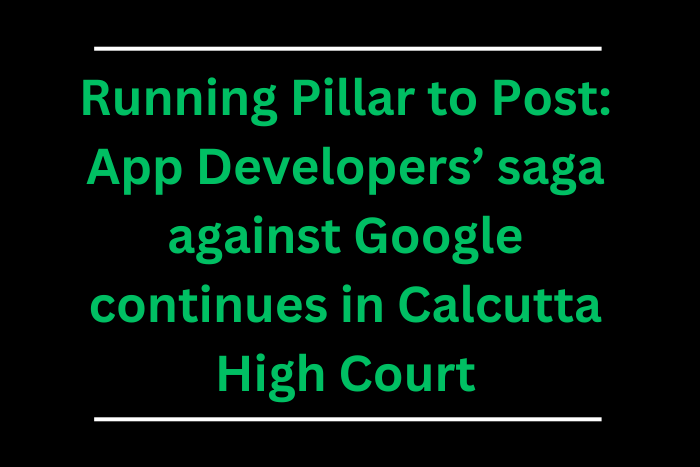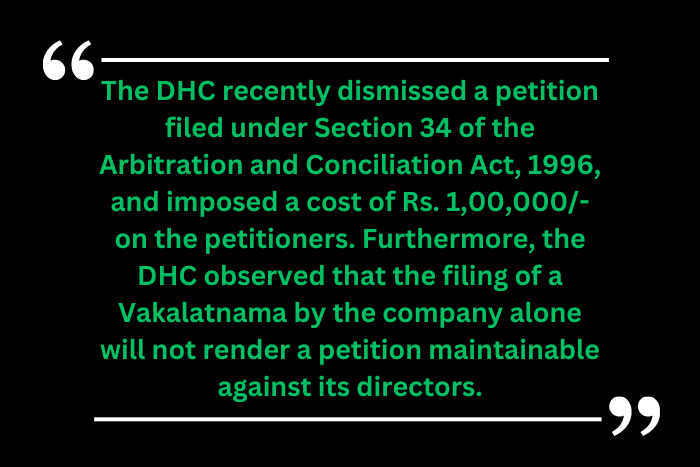The division bench of the Hon’ble High Court of Delhi (“DHC”), in Sunshine Capital Limited vs. Deputy Commissioner of Income Tax-Circle-9(1) Delhi & Ors through a judgement dated 16.04.2024, clarified that the contextual interpretation of the phrase “received” in Section 153(3) of the Income Tax Act, 1961, will mean that the limitation period will begin to run from the time when the Income Tax Department (“Department”) is notified about the pronouncement of the Income Tax Appellate Tribunal (“ITAT”) order rather than the physical receipt of the ITAT order and presence and representation of Department in the matter will qualify to have knowledge about the order.
Facts and Background
The case involves a disagreement between the petitioner and the Department over the assessment of the petitioner’s income tax return for the Assessment Year 2008-09. Initially, the petitioner declared a total income of ₹19,92,354, processed under Section 143(1) of the Income Tax Act, 1961.
The return was later scrutinized, leading to an assessment order under Section 143(3) on December 31, 2010, increasing the total assessed income to ₹100,42,66,390.
Additionally, the Department seized two properties belonging to the petitioner, one in Belgaum, Karnataka, and another in Moti Nagar, New Delhi.
The petitioner appealed the assessment order before the Commissioner of Income Tax (Appeal)(“CIT(A)”), which partially ruled in favor of the petitioner on November 29, 2013. The petitioner further appealed to the Income Tax Appellate Tribunal (ITAT), which remanded the matter back to the Assessing Officer for fresh assessment on October 8, 2018, and deleted the demand reflected on the Income Tax Business Application (ITBA) portal.
In the interim, a penalty order under Section 271(1)(c) was issued against the petitioner on March 27, 2015. The petitioner’s appeal against the penalty was dismissed by the CIT(A) on February 28, 2017.
However, the ITAT later dropped the penalty order on March 2, 2020, and deleted the ₹33.98 Crore penalty demand. The petitioner made several representations between July 30, 2020, and August 10, 2021, seeking rectification of the ITBA portal error and addressing refund issues.
After receiving no response, the petitioner filed a Right to Information (“RTI”) application on August 13, 2021, requesting appeal effects according to the ITAT order. Department No. 3, however, expressed its inability to comply, citing the non-receipt of the ITAT order for the relevant Assessment Year (“AY”) through official channels on November 3, 2021.
Contentions of the parties
Petitioner
The counsel representing the petitioner argued that the respondents’ failure to give effect to the appeal and issue an income tax refund is unreasonable and unjustifiable. Despite the ITAT order being communicated to the Department within the stipulated time, the Department has not issued a fresh assessment order for the relevant AY.
The counsel pointed out that the 12-month deadline for passing a fresh assessment order under Section 153(3) of the Act has lapsed, preventing the respondents from passing a fresh assessment order now. Additionally, the counsel argued that the respondents should have deleted the demand of ₹34.70 crores for quantum and ₹33.98 crores for penalty as these were deleted pending the fresh assessment order, which was never issued.
The counsel highlighted that the petitioner’s numerous representations to the Department for implementing the appeal effect were ignored. Finally, the counsel stated that the total demand for all AYs against the petitioner is ₹40,22,661, while the Department hold ₹65,67,332. The retention of ₹25,44,671 by the Department is against established legal principles, and the petitioner is entitled to a refund of this amount.
Respondent Department
The respondent Department argued that they could not comply with the ITAT’s order dated October 8, 2018, due to the order never reaching the concerned authority within the Department, specifically CIT (Judicial). They claimed that the ITAT is responsible for providing the order to the concerned authority, which it failed to do.
The respondents further contended that under Section 153(3) of the Income Tax Act, the limitation period of nine or twelve months begins when the ITAT order is received by the Principal Commissioner or the Commissioner. Since the order was never received by CIT (Judicial) or any other Principal Commissioner or Commissioner, the limitation period for passing an assessment order as per the remand could not have expired.
The counsel for the respondents relied on a Full Bench decision of DHC in the case of CIT v. Odeon Builders P. Ltd. (Delhi) [2017 SCC OnLine Del 7622], arguing that the limitation period starts only when a certified copy of the ITAT order is received by any Commissioner, including CIT (Judicial).
Observations by the DHC
The DHC noted that the respondents emphasized the word “received” in Section 153(3) of the Income Tax Act, arguing that there is a distinction between the “receipt” and “knowledge” of the ITAT order by the relevant authorities. The respondents maintained that a plain interpretation of the provision required a strict interpretation focusing on the receipt of the certified order by the concerned authorities.
However, the Court referred to the decision in CIT v. Odeon Builders P. Ltd. to observe that a strict interpretation based on non-receipt of the order cannot halt the limitation period.
Further, the Court observed that once a responsible authority or the Department’s Representative is aware of the order, the order’s communication is an administrative arrangement. The Court concluded that the term “received” in Section 153(3) does not necessitate that a certified copy of the ITAT order must be delivered through a specific mechanism.
Additionally, the Court observed that Section 254(3) of the Income Tax Act requires the ITAT to send copies of its orders to the assessee and the Principal Commissioner or Commissioner. Therefore, the interpretation of these provisions cannot be used to the petitioner’s detriment to indefinitely delay the proceedings, and compliance should be managed internally within the Department.
…
Contact us at hello@lawgacy.com to feature your firm’s deals, articles, columns, or press releases.


